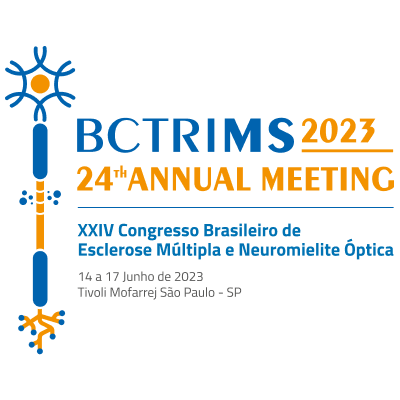Proceedings of the BCTRIMS 24th Annual Meeting
DISEASE-MODIFYING THERAPIES IN MULTIPLE SCLEROSIS: INFLUENCE OF THE COVID-19 PANDEMIC AND DETECTION OF SAFETY SIGNALS IN FDA ADVERSE EVENT REPORTING SYSTEM
How to cite this paper?
This paper was published through Galoá and has a deposited DOI. To cite this paper, use one of the standards below:
In case you are one of the co-authors and want to register this paper in your Lattes, use the following code: doi > 10.17648/bctrims-2023-167428
If you've NEVER registered a DOI in your Lattes, check our tutorial!How to cite this paper?
Introduction: Disproportionality analysis of adverse event reports is an important method for postmarketing surveillance of disease-modifying therapies (DMTs) in multiple sclerosis, especially in the context of increasing approval of new therapies in recent years. However, a notoriety effect resulting from the COVID-19 pandemic period could affect the early detection of potential safety signal for these therapies. Objectives: This study analyzed the influence of the COVID-19 pandemic on the reporting rate recorded in the FDA Adverse Event Reporting System (FAERS). Methods: All the records of adverse events and cases with DMTs suspected of causing the event from the FAERS public dashboard and reported between January 2004 and December 2022 were analyzed, defining the years 2020 to 2022 as the period of the COVID-19 pandemic. Results: A total 23,288,040 reports were analyzed, while 583,500 (2.5%) case reports were related to DMTs in multiple sclerosis. Overall, the average annual growth rate of reports was 13.3%, with an increase of 2.6%, in the pandemic period. In the analysis by year, no relevant variations were observed in the annual proportion between non-DMTs reports and reports with DMTs in multiple sclerosis, with the latter presenting an average annual reports rate of 2.9% in the period prior to 2020, and 1.5% in the pandemic. Although the average rate of serious and unexpected reports (expedited reports) for DMTs in multiple sclerosis increased in the pandemic by 18.3 percentage points, the rate of death reports remained constant (3.0%). Conclusion: The detection of safety signals for DMTs in multiple sclerosis may not be affected by the effect of notoriety due to the COVID-19 pandemic, considering the slight increase in the adverse event reporting rate in this period, as well as the constant percentage increase between reports for DMT and non-DMTs over the years. KEYWORDS: pharmacovigilance; adverse drug event; multiple sclerosis
- 1 UNIVERSIDADE FEDERAL DO PARANA
- 2 Hospital Alemão Oswaldo Cruz
- MS treatment
Streamline your Scholarly Event
With nearly 200,000 papers published, Galoá empowers scholars to share and discover cutting-edge research through our streamlined and accessible academic publishing platform.
Learn more about our products:
How to cite this proceedings?
This proceedings is identified by a DOI , for use in citations or bibliographic references. Attention: this is not a DOI for the paper and as such cannot be used in Lattes to identify a particular work.
Check the link "How to cite" in the paper's page, to see how to properly cite the paper

